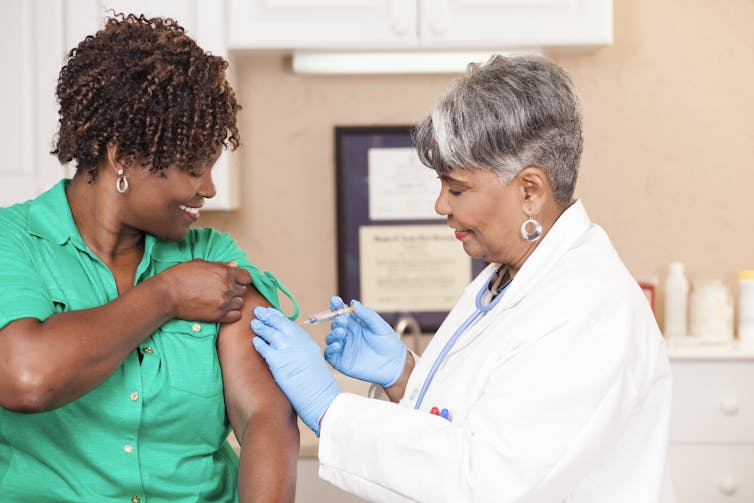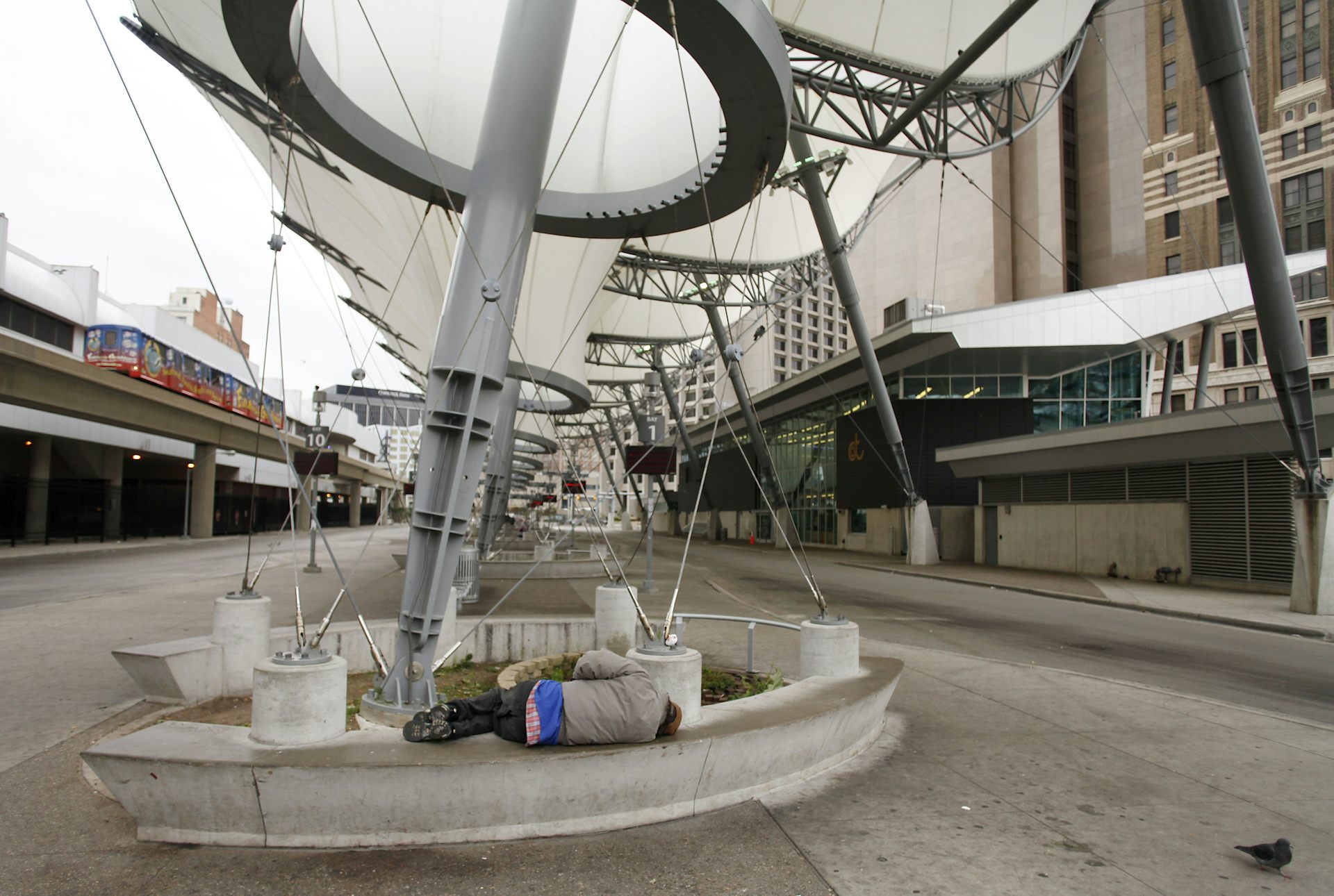Pneumonia vaccines for adults are now recommended starting at age 50 – a geriatrician explains the c
The change was spurred by a new vaccine specifically designed to protect against bacterial strains that infect adults and the growing recognition that pneumonia rates in adults over 50 are high.

Autumn brings a chill in the air – and the start of another season of respiratory illnesses, which can be especially hard for older adults.
Although vaccine recommendations have been in flux, the Centers for Disease Control and Prevention’s recommendations on respiratory vaccines for older adults remain robust.
As a geriatrician treating primarily patients age 65 and older, I’ve found that my patients are often unsure which of the various types of pneumonia vaccines is the best option for them.
Until recently, the CDC recommended that everyone age 65 and older get a pneumonia vaccine. A year ago, in October 2024, the CDC lowered the recommended age from 65 to 50 due to a growing recognition that pneumonia can cause serious illness in people ages 50-65 – especially people who have other conditions that make them particularly vulnerable.
Pneumonia basics
Pneumonia most commonly occurs when a bacterium called Streptococcus pneumoniae infects the lungs. The infection can spur an outsize immune response and damage cells.
The first vaccine for pneumonia was developed more than 100 years ago, at the request of the South African mining industry, which was losing a startling 5% to 10% of workers to the disease each year.
For decades the most widely used pneumonia vaccine for adults was the so-called 23-valent vaccine, or PPSV23, which was approved in 1983 and protected against 23 strains of pneumococcal bacteria. In 2014, the PCV13 vaccine, which protected against 13 types of these bacteria, became the first pneumonia vaccine to be routinely recommended for adults age 65 and older. This vaccine was made using a newer technology that is thought to be more effective.

Since then, three other pneumonia vaccines for adults, also made using the newer technology, have been licensed and added to the list of those recommended for older adults. The most recent of these is PCV21, which was approved in 2024 and specifically targets strains that usually affect adults rather than children.
Which specific pneumonia vaccine you get will depend on your medical conditions and other health factors. Your health care provider will determine the most appropriate option, but you can learn more about pneumonia vaccines on the CDC’s website and bring specific questions to your next health care visit.
Why did the guidelines change?
As the population of older adults rises, research suggests that without intervention, the number of people hospitalized with pneumococcal pneumonia could nearly double by 2040. About 150,000 Americans are hospitalized with pneumococcal pneumonia each year.
Although the Advisory Committee on Immunization Practices, the independent body that advises the CDC on vaccines, had previously considered lowering the recommended age to receive the vaccine from 65 to 50, the approval of PCV21 provided a push. Because the rate of pneumococcal pneumonia was so high in this age group, they moved to adopt the recommendation.
The pneumonia vaccine boosts the immune system’s ability to fight off this bacterium and lowers the likelihood of getting pneumonia – and of getting seriously ill, getting hospitalized, being put on a breathing machine or dying from a pneumonia infection.
According to the CDC, the old vaccine, PPSV23, is 60% to 70% effective in preventing invasive pneumonia, the more serious version of the disease in which pneumococcal bacteria infect the major organs and the blood. Althoughtis new, its mechanism and the strains it covers suggest it is even more effective, especially for people living in nursing homes or other long-term care facilities.
Who should get the vaccine?
Older age is the clearest risk factor for getting sick from pneumonia. So, if you’re like me and you are planning for an upcoming 50th birthday – and have never gotten the pneumonia vaccine before – make sure to put “get the pneumonia vaccine” on your birthday list.
If you’re an adult under 50 years old with a high risk condition, such as chronic liver disease or diabetes, the CDC also recommends you get vaccinated for pneumonia.
And make sure to talk with your health care provider to see that you’re also up to date on all recommended vaccines, which could include shingles, flu, RSV and COVID-19.
Laurie Archbald-Pannone receives funding from USDA and Prime, Inc
Read These Next
GLP-1 drugs may fight addiction across every major substance, according to a study of 600,000 people
GLP-1 drugs are the first medication to show promise for treating addiction to a wide range of substances.
Housing First helps people find permanent homes in Detroit − but HUD plans to divert funds to short-
Detroit’s homelessness response system could lose millions of dollars in federal funding for permanent…
When unpaid cooking, cleaning and child care get a dollar value, income inequality in the US shrinks
Women’s unpaid work at home has declined much more than men’s contributions have increased.






